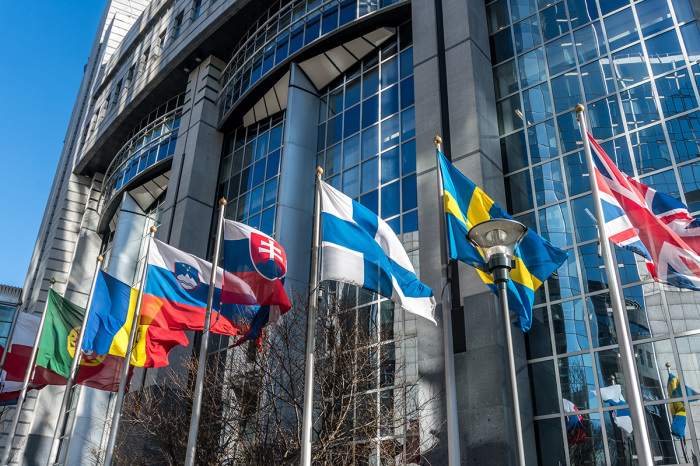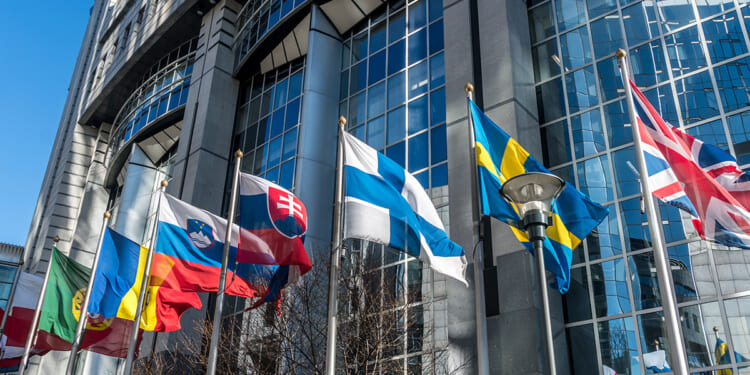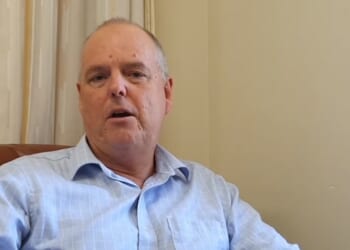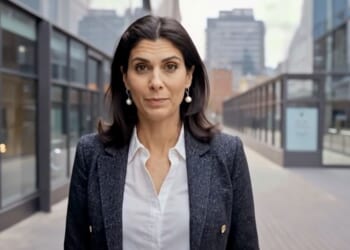
More than 100 free speech advocates, including former U.S. and European officials, have urged the European Commission to reconsider a key internet regulation that they say risks censoring global speech and undermining international free expression rights.
In a letter to the executive body of the European Union, the 113 signatories warned that the EU’s Digital Services Act creates “a pan-European censorship infrastructure” with vaguely defined limits that could suppress lawful content across borders, human rights group ADF International reported.
The letter calls for an overhaul of the commission’s review process, demanding that it include input from independent experts in constitutional law, digital rights and free expression.
The review is due by Nov. 17. Signatories include former U.S. Ambassador at-large for International Religious Freedom Sam Brownback, former Yahoo Europe Vice President Jean-Marc Potdevin, Princeton professor Robert P. George, Free Speech Union founder Toby Young, journalist Michael Shellenberger, and rights advocate Ayaan Hirsi Ali, a research fellow at the Hoover Institution.
Other signatories include Al Mohler, president of the Southern Baptist Theological Seminary in Kentucky; Andrew. T. Walker, an associate professor of Christian Ethics and Public Theology at the Southern Baptist Theological Seminary; American conservative writer Rod Dreher; and Babylon Bee CEO Seth Dillon.
The letter criticises the broad scope of “illegal content” under the DSA, arguing that it allows the EU to apply the strictest speech rules of any member state across the entire union and beyond.
“The broad definition of ‘illegal content’ in the DSA, combined with existing jurisprudence of the Court of Justice of the European Union (CJEU) opens the door to worldwide takedowns,” the letter reads.
The authors contend that social media platforms, which often use standard content moderation policies globally, may adopt EU restrictions as default rules. The letter quotes a U.S. House Judiciary Committee statement warning that the DSA could establish “de facto global censorship standards.”
The letter also urges the commission to publish a list of all NGOs, civil society groups and partner entities involved in the DSA review, along with selection criteria. It asks for a detailed legal analysis of the DSA’s alignment with international protections under Article 11 of the EU Charter of Fundamental Rights, Article 10 of the European Convention on Human Rights, and Article 19 of the International Covenant on Civil and Political Rights.
Virginie Joron, a member of the European Parliament from France who signed onto the letter, said she had been informed by France’s digital regulator ARCOM that the DSA could be used to remove online posts anywhere in the world.
She cited a 2023 example after a knife attack in Annecy, France, in which a U.S. citizen’s social media post was taken down, although the content would have been legal under U.S. law.
U.S. Ambassador to the EU Andrew Puzder warned that the DSA could restrict speech protected under the First Amendment.
Speaking about the act’s extraterritorial reach, he said, “No President of either party, and I can tell you President Trump in particular, is going to tolerate a foreign government restricting the First Amendment fundamental free speech, free expression rights of American citizens, to an extent that the United States government can’t even regulate those rights.”
Ambassador Puzder added that the United States plans to make formal submissions during the commission’s review of the legislation. Google has also previously warned that the DSA could limit American speech online.
Adina Portaru, senior counsel for ADF International in Brussels, said the commission’s assertion that the DSA only creates a safer digital environment is contradicted by the letter’s findings. She argued that the law imposes “an online censorship regime not just in the EU, but across the whole world.”
In February, U.S. Vice President J.D. Vance criticized European laws at the Munich Security Conference, calling them discriminatory against Christians and repressive of conservative voices. He cited arrests and fines of European citizens for religiously motivated speech and said Europe’s internal censorship was a greater threat than foreign adversaries.
Vance described the DSA as part of a larger crisis “of its own making,” arguing that Europe had strayed from fundamental democratic values. He also condemned efforts to exclude populist parties like the Alternative for Germany (AfD) from political coalitions, calling them anti-democratic.
His remarks drew strong pushback from German leaders, including President Frank-Walter Steinmeier and Defense Minister Boris Pistorius, who challenged Vance’s views and reaffirmed Europe’s commitment to democratic norms.
The speech drew praise from German opposition leaders, including AfD co-leader Alice Weidel, who called it an “excellent speech!” on X.
Paul Coleman, ADF International’s executive director, said earlier this year that the DSA represents a shift away from free expression. He described the law as part of “a new bipolar order of speech,” with Europe embracing censorship and the United States recommitting to open discourse.
The DSA, adopted in January, requires online platforms to remove illegal content or risk penalties of up to 6% of their global revenue. EU lawmakers have described the law as a tool to fight foreign interference and protect users from harmful content.

















